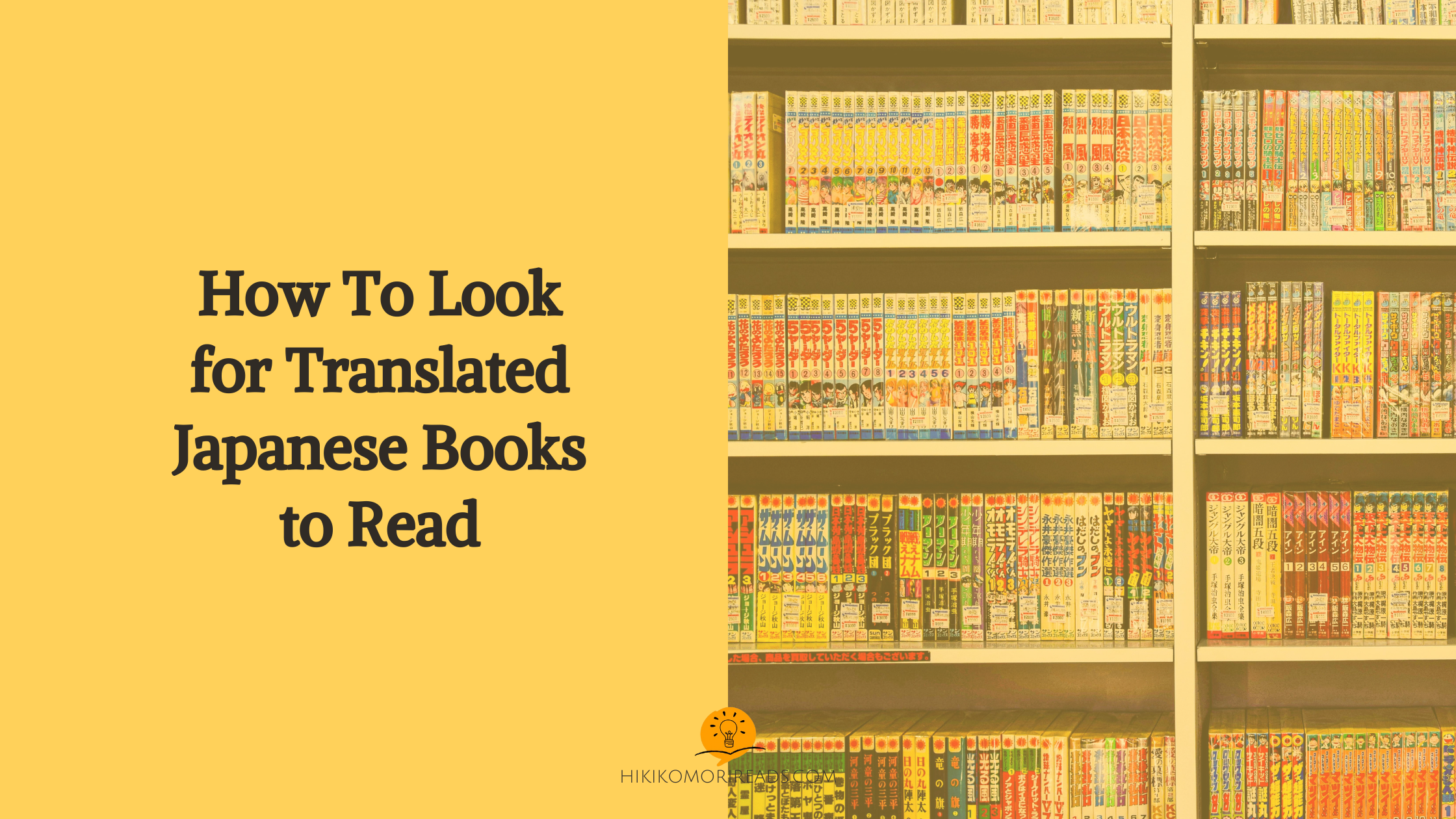Japanese fiction is a treasure trove of out-of-this-world curiosities and quiet, heartrending introspections. Some are downright weird, yet arresting enough to make you want to keep reading. In an ideal world, fans of Japanese literature can just read the original text. Sadly, not all Japanese fans love the language, or rather, love learning the language.
So, as a placeholder for reading an actual Japanese book, we ordinary humans who have no time to pick up a new tongue pick the translated copies instead. For me, that’ll be the English ones. Like how I approach selecting Filipino titles, I want to learn things about Japanese literature, and from there, start searching high and low for books I’ll add to my tsundoku pile. Here are the steps I take to look for the best translated Japanese books out there.
Read Wikipedia’s Japanese Literature Section
There are a lot of conveniences Wikipedia offers to nerds, and one of them is listing in one place all of Japan’s notable written works throughout history. The entry is, of course, not as detailed and scholarly, but the information you can get from the page is a good start.
My favorite from the Wikipedia page is the neat list of significant authors and works categorized by periods. I prefer modern works, but once in a while, the older ones can make one curious as to why they were notable (much like how I approach classic Western literature). The page is a fast way to find titles that match your mood for the day. Of course, not all of the works are translated, but that adds to the fun of the search!
Pay Attention to Japanese Media
Occasionally, you’d stumble upon a translated haiku or free verse poem quoted on Instagram and feel something life-changing, so you’d dive into that author’s works and discover a wealth of poetry, and once in a while, an anthology book or a full-pledged novel, all in English!
Or sometimes, you’re like me, who’s watching a Japanese drama and, thanks to subtitles, comes to appreciate a passage from a Japanese author, even crying because of the poem, and scouring the internet to read more of that brilliant mind’s works. That’s what happened when I watched Juhan Shuttai! and Father of the Milky Way Railroad, the former citing Kenji Miyazawa’s poem “Be Not Defeated by the Rain,” and the latter being the author’s biography. Needless to say, I looked for other translated works and, as expected, there were plenty!
However, note that there may be two or more translations of the same work. I have a preference for ones that mimic the cadence of the original Japanese language (some translators are really talented at this!) and the ambiguity of the verses and phrasings. You do you, of course! It’s the message and the resulting emotions that reign supreme in the end.
Listen to the Read Japanese Literature Podcast
If you want more context about the text you’d want to read, listening to Alison Fincher can tremendously help. The episodes are short, but I guarantee you’ll be listing a lot of titles and trying to squeeze the available English-translated ones into your TBR list. That’s how effective Alison is in hyping up Japanese works!
If you want to read instead, the podcast has a matching blog listing all the titles mentioned in the show and helpful links, so you can buy the book and support the show creator. The great thing here is you’ll be buying from Bookshop.org, which supports independent booksellers.
Side Note: You can get your copy from a bookseller at home. You’d be surprised at the number of online secondhand book shops that sell obscure translated Japanese titles! Fully Booked, thanks to its partnership with Books Kinokuniya, is also a great source for translated Japanese books (though they’re pricier).
Keep Searching the Internet for Translated Japanese Books
If you’re a true bookworm and you can’t get enough of Japanese books, or you don’t trust the best-of or listicles many sites regurgitate from older posts and update annually, then keep searching. You’ll find gems eventually.
Case in Point: My latest search this year led me to an amazing site that features modern Japanese literature worth sharing with the world (the curators themselves believe so). The Japanese Foundation’s project aims to connect authors to translators worldwide, and as of writing, they have five volumes of curated contemporary titles that they recommend for translation. If you’re learning to read Japanese, this selection can be useful in discovering modern titles that have yet to be translated into English. It can also help you make a list of untranslated titles and maybe petition translators to take them up. Or you can translate them yourself.
The Wrap Up
Again, keep searching. You’re bound to find titles as piquant and brilliant, if not more, as a Murakami or an Ishiguro. Yes, we like familiar authors. However, there’s more to Japanese literature, and any literature for that matter, than the big, popular names.
